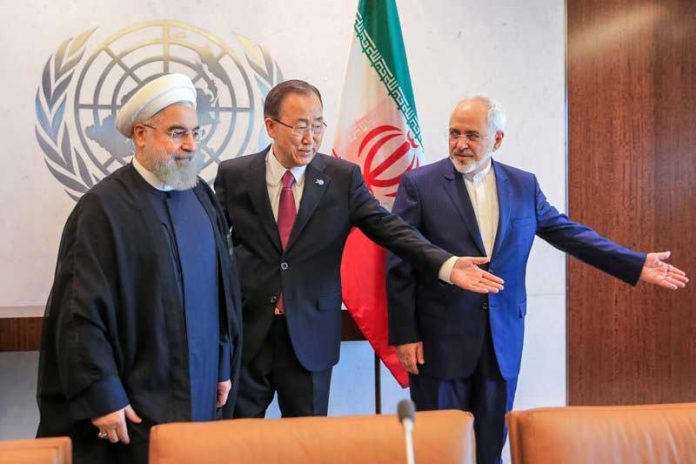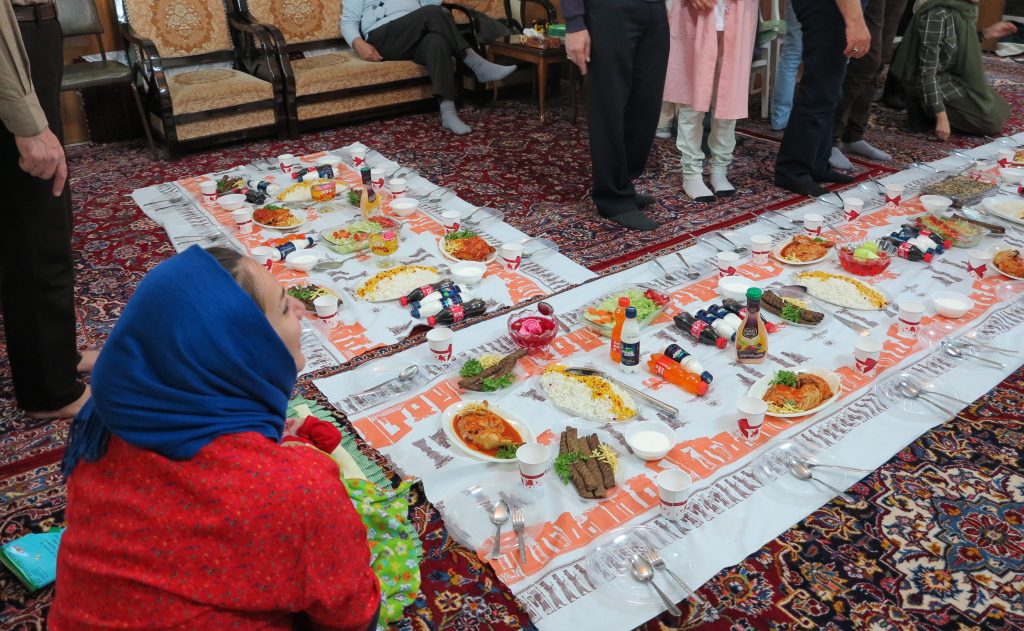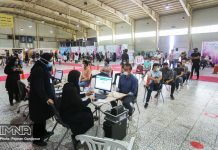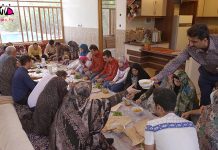
In Iran, like any other nation, knowing about ritual and etiquette is vital for everyone in order to identify with the culture and live with more comfort. It’s especially the case in Iran with its long history and its strong collective culture. Not observing some of these behaviors not only is a signal of being a stranger but also causes social exclusion or rejection. Here’s a shortlist of the main points as I remember:
- Saying “Salaam” (hello) at the beginning and “Khodahafez” (goodbye) at the ending of a conversation or meeting to everyone present is more important than what you imagine. Going away after a meeting without saying Khodahafez may be insulting. In traditional communities, the children have to say hello first to the older ones to show respect.
- The verbal greetings are often long, for example, asking a few times ‘how are you?’, ‘what’s news’, ‘what are you doing’ and so forth! It happens both in meetings and on the phone. Be patient and know that it’s not mandatory to reply accurately to every question. Just say “Mamnoon”, “Salamat Bashid”, etc. It’s only a warm-up to begin the main conversation.
- Stretching the feet in front of other people, especially the ones other than close family relatives is rude. Also, it’s rude to show your thumb or the middle finger as well as staring and pointing at someone.
- It’s better not to sit in a way that someone is behind you. Some exceptions include backing someone while praying, sitting inside the car, and in the class. If it’s inevitable to do so, you’d better say ‘excuse me’ to that person.
- It’s better to be at the same level as the one who you speak to. If they are standing and you are already sitting, it’s nice to stand up and continue your conversation.
- Calling people in formal relationships is always by their last name. It usually takes a long time to transmit to the informal type of relationship. For example, it’s pretty unusual and unacceptable to call your university professor with his/her first name even after the years.
- When calling others, it’s better to say their position or title if there’s any and sometimes the title even replaces their name. For example, calling ‘Doctor’ for anyone with a Ph.D. or ‘Mohandes’ for someone with a Master’s degree or ‘Haj Aqa’ for a clergyman or an elder. It’s even true in informal relationships. For example, colleagues or classmates may still call each other “Mohandes” or “Doctor”! (Even though they have not finished their BSc or Ph.D.!!)
- Dressing in public places is highly determined by the measures of society. For example, it’s strange to go out in underwear or shorts even for the men. (I wrote a little about dress code before)
- Belching and blowing your nose in public is rude except that you are inside the toilet. When yawning or cleaning the teeth in public, it’s expected to put your hand in front of your mouth.
- When someone wants to enter a room with a closed door, they have to knock the door. When anyone enters a room, especially if he’s old or not in a close relationship, it’s nice that others stand up for him/her. It’s usually true in school or university classes when the professor enters the class.
- Age is always a determinant of respect. It’s expected that you respect the elderly people in public and prioritize them in queues. It’s pretty usual that the young people stand up and offer their seats to the elderly inside a train or bus. It’s sometimes true for women to receive more respect than men in public places.

Some special tips for the meetings and parties
- When invited to a home meeting or party, it’s not good to present early or too late from the time indicated by the host (attention: being earlier even only for half an hour may make troubles for the host because they may not be prepared). If no certain time is indicated by the host, especially when you are invited for a meal, you still have to observe unspoken rules! If this is lunch, be there about 11-12 am and if this is dinner, be there about 7-8 pm.
- In a house party, you shall not sit before the others or the newcomers sit down at their place. We usually wait for the host to offer a place (chair or couch) to sit on. The people with more respect are often offered to sit at the end –‘top’- of the room (the farthest from the entrance door).
- When you are in a meeting for a meal, the host invites you to go around the table when the meal is ready to be served. Then everyone sits around the table (or Sofreh) but it’s better not to start eating before everybody shows up, especially the ones who are preparing the dishes in the kitchen. It also happens that the host waits for all the guests to come before preparing the table for the meal. It’s a sign of respect. When everyone is present, it’s still better to wait until the others start. It’s good for you to bring the dishes available to others close to you before you start for yourself. It’s not strange if the host checks when your dish frequently and offer you more food when it’s empty!
- It’s not acceptable to make sounds while eating and drinking.
- At the end of a home party, when a guest wants to leave, the host convoys him/her usually to the apartment door and stays there until he/she disappears.
- If you are invited for an outdoor meeting in a restaurant of café, most of the time it’s not expected to cover your own expense except that it’s asserted before.
Taarof
But among every etiquette in Iranian society, a set of behaviors called “Taarof” is the most strange and confusing for anyone new to this society. It’s even hard to fully explain it here but I try!
Taarof literally means offering something to someone for free. But it’s also a term used for “the verbal or behavioral norms which are expressed just to show respect and politeness rather than their real meanings”.
It happens in different situations. For example:
- In a meeting, especially in traditional families, you are offered many times to serve different dishes and sometimes the host insists to pour more food into your dish!
- When a couple of people want to enter a room, they offer each other to enter first, and sometimes they do it many times for each door in their way!
- In normal greetings, they say unreal words. For example, “Qorbanat” which means “I sacrifice my life for you!” or “Mokhlesam” which means “I’m your servant”, etc.
- Although Iranian hospitality is famous around the world, however, when they offer you to go to their house or eat their food, it’s not always real! You must always assess the situation yourself. If it’s late at night and your neighbor is inviting you to their house, it’s probably just a Taarof! You must just say thank you as a sign of rejection. Or when someone with a little amount of food for their own lunch is tending to share it with you, it may not be true.
- In a meal meeting, everyone tries not to be the one who finishes a common dish because there may be still someone who wants more of that kind of food while there’s no more available. As a result, it’s usual that if there is not much amount of food, a little is left in the middle of the table at the end.
- At shopping or in a taxi or restaurant, when it’s time to pay and you ask “How much is it?”, you may hear “Qabeli Nadareh” which means “No need to pay (it’s free?!)” or something like that. That’s always a Taarof and you must ask again even several times!
Read more about Iranian etiquette: https://iranamaze.com/iran-etiquette/











